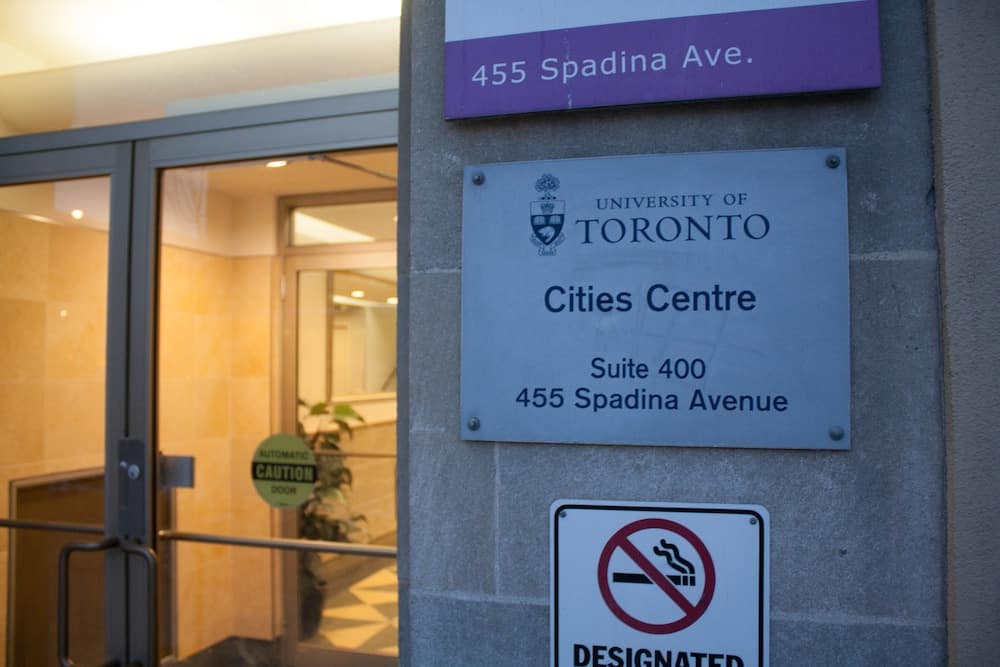Instead of opening its doors to new urban research students and faculty this January, the Cities Centre at the University of Toronto will be closing them. On November 29, 2013, the Cities Centre released a final news bulletin, reporting that the university administration had shamefully cut the Centre’s funding. This move represents a huge loss to the university community and the City of Toronto. Furthermore, it is yet another example of unilateral decision-making and the pervasive neoliberal governance of the U of T.
The Cities Centre was one of those rare parts of the university that was firmly rooted both within the city and academia. Members produced research that was useful for scholars, policy makers, and community organizers alike. Centre researchers tackled the difficult issues of inequality and access in the city, raising important questions about homelessness, suburban poverty, accessibility, immigration, and gentrification. Most importantly, it supported critical and progressive research by working with diverse community partners to address changes and challenges facing urban neighbourhoods and residents.
It is frustrating and disheartening that the university would abolish such a pillar of progressive urban policy and urban studies. This move, and the opaque decision-making process, has not gone unnoticed. Influential individuals in urban policy and planning — like Toronto’s former mayor David Miller — have written letters in support of the Cities Centre. On December 16, 2013, the Toronto City Council received a motion — moved by councillor Joe Mihevc and seconded by councillor Mike Layton — concerning the closure of the centre. The motion called attention to the important work done by the Cities Centre, and expressed a desire to “see a strong funded and interdisciplinary research centre” continue at U of T. It was forwarded to U of T president Meric Gertler, and has been referred to the city’s executive committee.
The closure of the Cities Centre not only negatively affects the research and learning environment at the university, but it also impacts individual students and scholars. During my graduate studies in the Department of Geography and Planning, the Centre’s work was particularly important. Several studies provided the foundational research needed to conduct my doctoral work on illegal rooming houses and municipal bylaws in Toronto’s inner suburbs. In addition, the centre published research on pertinent urban issues that resulted in vigorous debates in graduate seminars and undergraduate lectures alike.
The Centre’s impact extends beyond the classroom; its innovative research directly informs urban policy and planning in Toronto. Furthermore, the centre created a hub for scholars from diverse disciplines to collaborate on projects and find a home for their work. I was fortunate enough to work with several faculty members associated with the centre, and welcomed the emails informing me of events, panel presentations, and publications. As I embark on my academic career, I wonder where I will turn when researching and publishing new work on contemporary progressive urban issues in Canada.
By cutting the funding to the Cities Centre, U of T is following a dangerous and ideological trend. Neoliberal governance is increasingly the norm at most North American universities, and U of T is no exception. The university administration has referred to undergraduate students as “basic income units,” conducted lengthy negotiations with unionized workers, and moved towards hiring more contract faculty versus providing stable tenured positions. Cutting funding to a centre that supported critical urban research, dialogue, and community partnerships aligns with this trend.
The lack of consultation and the proposed “merger” with another urban centre is indicative of a disturbing pattern in U of T’s administration. Decisions are made with no input from the affected parties, consultation, or formal external review. It is an appalling way to govern a university. Unfortunately, the Cities Centre is only one of many causalities. The closure ends an era of groundbreaking urban research, partnership-building, and direct research-to-policy influence, and it will be greatly missed.
Lisa Freeman is a recent graduate and phd. in geography and planning.


